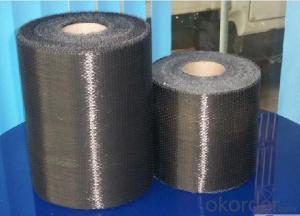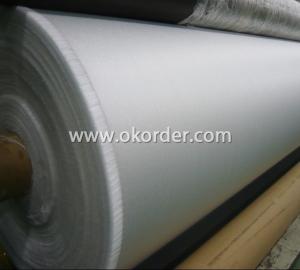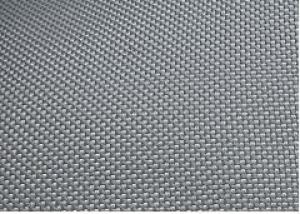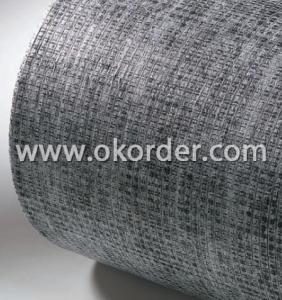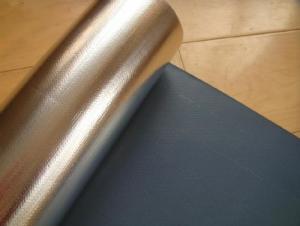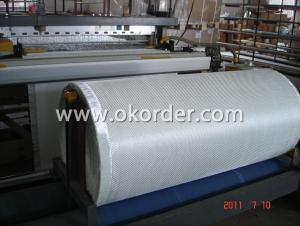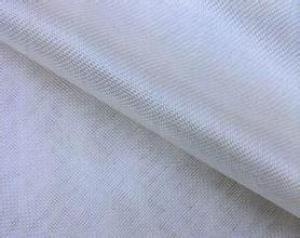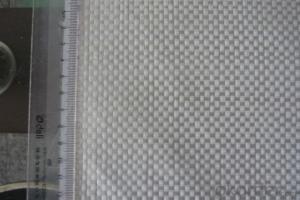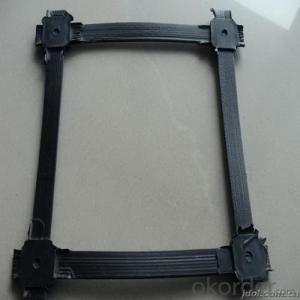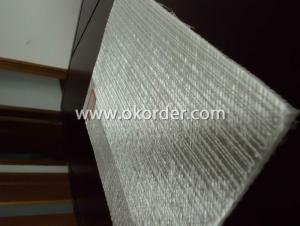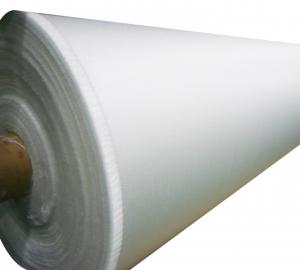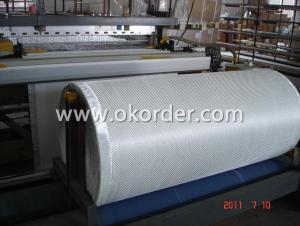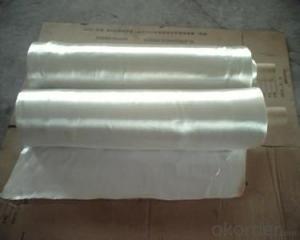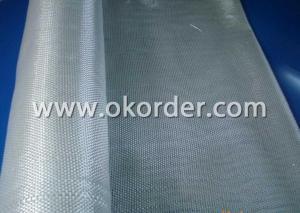Carbon Fiber Manufactured Fabrics
- Loading Port:
- China Main Port
- Payment Terms:
- TT or LC
- Min Order Qty:
- -
- Supply Capability:
- -
OKorder Service Pledge
OKorder Financial Service
You Might Also Like
Description:
With raw material of carbon fiber yarn from Toray or Mitsubishi Japan , our company can produce both woven fabric and knitted fabric, including unidirectional fabrics, plain weave fabric, twill fabric, satin fabric and multi-axial fabrics. The main use of carbon fabric is to make structural materials reinforced with resin, metal, and ceramic etc. Among the existing structural materials, carbon fiber reinforced epoxy resin composites have the highest specific strength and modulus. In the areas of strict requirements on density, stiffness, weight, fatigue characteristics, high temperature and high chemical stability, CFRP have an outstanding advantage.
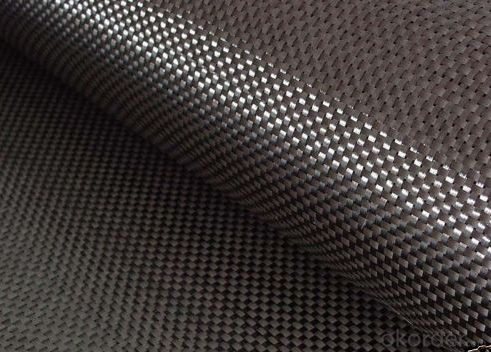
Product Features:
● Light weight
● Products high strength, high modulus
● Superior acid corrosion resistance
Product Specifications:
Density:100-400g/m2.
Item:1k,2k,3k,6k,12k.
Weave:Plain,Twill,Satin,Multiaxial,UD。
Packaging:
Each roll is wound onto a paper tube which has an inside diameter of 76mm and the mat roll has a diameter of 225mm. The roll is wrapped up with plastic film,and then packed in a cardboard box or wrapped up with kraft paper. The rolls can be horizontally placed. For transportation, the rolls can be loaded into a cantainer directly or on pallets.
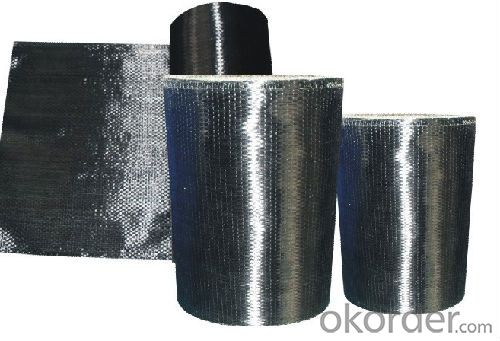
FAQ:
1.What is the delivery time ?
15days after receiving the deposit
2.Are you a trading company or factory.
We are factory,and we have more than 10 years of experience.
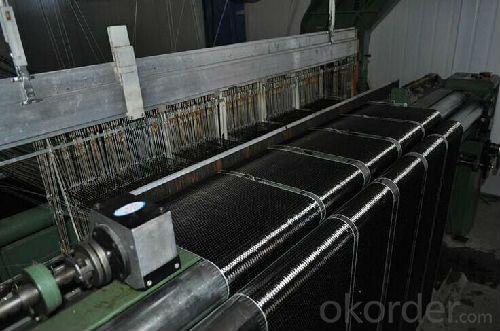
- Q:Is fiberglass fabric resistant to ultraviolet radiation?
- Yes, fiberglass fabric is resistant to ultraviolet radiation.
- Q:Are fiberglass fabrics resistant to oil or grease?
- Fiberglass fabrics, in general, possess resistance to oil and grease due to their non-absorbent nature and lack of reaction with these substances. Moreover, they frequently undergo treatment with a chemical finish or coating to further enhance their resistance against a range of substances, including oil and grease. Nevertheless, it is crucial to acknowledge that the degree of resistance can differ depending on the precise type and quality of the fiberglass fabric. Thus, it is advisable to review the manufacturer's specifications or seek guidance from a professional to ensure the fabric's compatibility with oil or grease in particular applications.
- Q:What are the different fiberglass fabric weaves for high strength applications?
- There are several different fiberglass fabric weaves that are commonly used for high strength applications. These weaves include plain weave, twill weave, satin weave, and leno weave. 1. Plain weave: This is the most basic and common weave pattern. It consists of an over-under pattern, where each warp yarn goes over and under each weft yarn. Plain weave fabrics provide excellent strength and dimensional stability, making them suitable for a wide range of high strength applications. 2. Twill weave: Twill weave is characterized by a diagonal pattern created by the interlacing of warp and weft yarns. This weave is known for its strength and durability. Twill weave fabrics offer good drapability, making them ideal for applications that require flexibility and resistance to wrinkling. 3. Satin weave: Satin weave is characterized by long floats, where the warp or weft yarns skip over multiple yarns in the opposite direction. This creates a smooth and lustrous surface. Satin weave fabrics have excellent strength and are commonly used in applications where a high-quality finish is desired, such as aerospace components and luxury goods. 4. Leno weave: Leno weave is a unique weave pattern that involves twisting adjacent warp yarns around each weft yarn. This creates a stable and open structure with good strength and stability. Leno weave fabrics are commonly used in high strength applications where breathability and lightness are important, such as in filtration systems and composites. These different fiberglass fabric weaves offer varying degrees of strength, flexibility, and durability, allowing manufacturers to choose the most suitable weave for their specific high strength applications.
- Q:What are the standard lengths of fiberglass fabric?
- The standard lengths of fiberglass fabric typically vary depending on the manufacturer and specific product, but they commonly come in rolls or bolts ranging from 25 yards to 100 yards in length.
- Q:Hello, could you tell me how to do the surface treatment under the glass fiber cloth? Thank you
- Temperature resistant glass fiber cloth, with the characteristic of soft heat, compared with asbestos cloth, it has no dust, no harm to human body and other advantages, is the ideal substitute of asbestos, fire resistance, heat resistance, energy saving products is a kind of economical and practical.
- Q:How does fiberglass fabric handle moisture?
- With its exceptional moisture resistance and high water-resistant properties, fiberglass fabric is renowned. Its structure, comprising interwoven glass fibers, prevents water absorption and remains unaffected by moisture or humidity. Consequently, fiberglass fabric proves itself as an ideal choice for various purposes, especially those involving exposure to moisture, like boat hulls, outdoor furniture, and building materials. Furthermore, it inhibits the growth of mold or mildew, further enhancing its capacity to withstand moisture.
- Q:Is fiberglass fabric suitable for use in protective masks?
- Indeed, fiberglass fabric proves to be a fitting option for deployment in protective masks. Renowned for its unparalleled robustness and resilience, fiberglass emerges as an optimal selection for safeguarding equipment. It establishes a steadfast shield against particles, dust, and other detrimental agents. Moreover, fiberglass fabric boasts a featherweight composition, ensuring wearers can comfortably don the mask for prolonged durations without experiencing any distress. Furthermore, its resistance to fire further amplifies its appropriateness for protective masks. In conclusion, fiberglass fabric successfully fulfills the essential prerequisites for a dependable and efficient protective mask material.
- Q:Is fiberglass fabric suitable for making protective covers for machinery?
- Yes, fiberglass fabric is suitable for making protective covers for machinery. Fiberglass is a durable and strong material that offers excellent resistance to heat, chemicals, and abrasion. It is also lightweight and flexible, making it easy to work with and shape into custom covers for different types of machinery. Additionally, fiberglass fabric has good insulation properties, protecting the machinery from temperature variations and potential damage. Furthermore, fiberglass is non-flammable, adding an extra layer of safety for the machinery it covers. Overall, fiberglass fabric is a reliable and effective choice for making protective covers for machinery.
- Q:Can fiberglass fabric be used for making gaskets?
- Indeed, the utilization of fiberglass fabric is applicable in the production of gaskets. Renowned for its exceptional durability and ability to endure high temperatures, fiberglass fabric emerges as an optimal material for gaskets necessitating resilience against intense heat and pressure. This fabric guarantees a dependable seal and finds frequent application in domains demanding chemical resistance and long-lasting performance, including the automotive, aerospace, and industrial sectors. Moreover, the lightweight and flexible nature of fiberglass fabric enables effortless installation and facilitates adaptability to diverse gasket configurations.
- Q:Mural and wallpaper are different, which should pay attention to choosing murals?
- Murals can be made of borders and made of wallpaper on the wall, which is a good choice as an entrance. The wallpaper can also be cut a certain size, with a border made of murals to decorate the wall.
1. Manufacturer Overview |
|
|---|---|
| Location | |
| Year Established | |
| Annual Output Value | |
| Main Markets | |
| Company Certifications | |
2. Manufacturer Certificates |
|
|---|---|
| a) Certification Name | |
| Range | |
| Reference | |
| Validity Period | |
3. Manufacturer Capability |
|
|---|---|
| a)Trade Capacity | |
| Nearest Port | |
| Export Percentage | |
| No.of Employees in Trade Department | |
| Language Spoken: | |
| b)Factory Information | |
| Factory Size: | |
| No. of Production Lines | |
| Contract Manufacturing | |
| Product Price Range | |
Send your message to us
Carbon Fiber Manufactured Fabrics
- Loading Port:
- China Main Port
- Payment Terms:
- TT or LC
- Min Order Qty:
- -
- Supply Capability:
- -
OKorder Service Pledge
OKorder Financial Service
Similar products
New products
Hot products
Hot Searches
Related keywords
